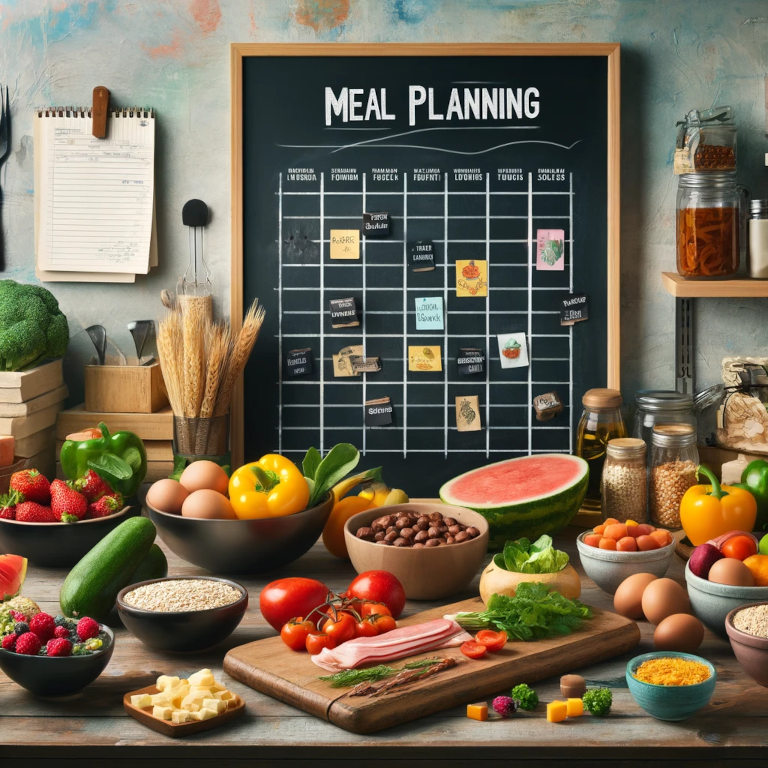Meal planning is a strategic approach to cooking and eating that not only streamlines your weekly food preparation but also enhances your diet quality, reduces waste, and can significantly cut down on your grocery bills. This guide provides detailed insights into meal planning, making it easy and effective, especially for those balancing busy schedules with a desire to eat healthily.
What is Meal Planning?
Meal planning involves selecting and organizing meals ahead of time. It is the process of deciding what to eat for the upcoming week or month, shopping for all necessary ingredients in one go, and preparing some components of the meals ahead of time. This practice can vary widely depending on dietary preferences, household size, and personal goals.
Benefits of Meal Planning
- Nutritional Balance: By planning your meals, you can ensure a more balanced intake of nutrients. This pre-planning helps in incorporating a variety of food groups, including fruits, vegetables, proteins, and grains into your daily diet.
- Time and Cost Efficiency: Meal planning reduces the frequency of grocery shopping and minimizes impulsive buys, which in turn lowers overall food costs. It also saves time during the week, as much of the food preparation is done in advance.
- Reduced Food Waste: Planning your meals means you buy only what you need. This approach significantly cuts down on food waste, as you can plan to use all the ingredients you purchase.
- Stress Reduction: Knowing what’s for dinner in advance can reduce daily decision fatigue and stress about preparing meals last minute.
How to Start Meal Planning
- Assess Your Week: Look at your weekly schedule to determine how many meals you need to prepare. Consider work schedules, school activities, and social plans that could affect your meal times.
- Choose Your Recipes: Based on your dietary preferences and time constraints, select a variety of recipes that you can rotate throughout the week. Include some that require little to no cooking for especially busy days.
- Make a Shopping List: Create a list of ingredients you need for your chosen recipes plus any staples needed to restock your pantry.
- Prep in Advance: Prepare as much as you can in advance—chop vegetables, marinate proteins, or even cook entire meals to be reheated later.
Tips for Successful Meal Planning
- Keep it Flexible: Have backup options available, such as quick recipes or even healthy frozen meal choices for when plans change unexpectedly.
- Involve the Family: If you’re planning for a family, get input from all members. This not only helps in accommodating everyone’s preferences but also divides the workload.
- Use Technology: Utilize apps and tools designed for meal planning and grocery shopping to streamline your process.
Incorporating Variety
To keep meal planning exciting, introduce new recipes regularly. This not only prevents mealtime monotony but also encourages a more diverse nutrient intake. Experiment with themes like “Meatless Monday” or “Family Favorites Friday” to make meal planning a fun and engaging activity.
Meal planning is a practical approach to managing your diet that can lead to better nutritional habits and a more organized lifestyle. With a little bit of practice and the right strategies, anyone can master meal planning, making the journey towards healthier eating both successful and enjoyable. Whether you are a busy professional, a student, or someone looking to overhaul their eating habits, meal planning offers a structured path to healthier and more mindful eating.






